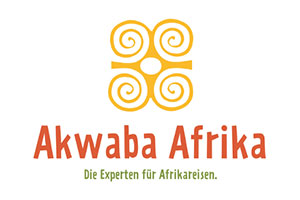Algerien
Reisetipps für algerien
Top 5 Erlebnisse
Algerien verzaubert mit seinen malerischen Mittelmeerküsten und der majestätischen Saharawüste. Zu den Höhepunkten gehören:

Sahara
Algerien beherbergt einen großen Teil der Sahara und bietet erstaunliche Möglichkeiten für Wüstenabenteuer. Auf einem Kamelritt oder beim Besuch der atemberaubenden Sanddünen des Grand Erg Occidental kann man hautnah in das Wüstenmeer eintauchen.

Algiers
Diese dynamische Metropole vereint Traditionne und Moderne. Die von der UNESCO zum Weltkulturerbe ernannte Kasbah, das Bardo-Nationalmuseum und die Uferpromenade der Corniche warten darauf, erkundet zu werden.

Römische ruinen
Die historischen römischen Ruinen von Timgad, oft als „Pompeji Nordafrikas“ bezeichnet, gewähren erstaunliche Einblicke in die römische Vergangenheit der Region.

Tassili n’Ajjer National Park
Der Tassili n’Ajjer-Nationalpark, der zum UNESCO-Weltkulturerbe gehört, ist bekannt für seine atemberaubende Landschaft mit ihren Felsformationen, Schluchten und antiken Höhlenmalereien.

Ghardaia
Die mozabitische Kultur in Ghardaia lädt mit ihrer unverwechselbaren Altstadt-Architektur auf eine faszinierende Entdeckungsreise ein. In der ruhigen Umgebung der Oase lässt es sich wunderbar entspannen.
Touristische Infrastruktur
Infrastruktur:
Außerhalb der großen Städte in den nördlichen Regionen ist die touristische Infrastruktur Algeriens wenig entwickelt. Bei der Planung von Flügen mit Air Algérie ist zu beachten, dass häufig eine Rückbestätigung der Buchungen erforderlich ist. Wenn diese nicht erfolgt, kann es zu Problemen bei der Beförderung kommen. Gelegentliche Flugverspätungen können zu verpassten Anschlussflügen mit knappen Zwischenlandezeiten führen.
Der Straßenzustand in Algerien ist im Allgemeinen gut, doch sollte man sich darüber im Klaren sein, dass viele Gebiete von Ausländern nur in Begleitung einer Polizeieskorte befahren werden dürfen.
Tourismus Unterkunft in Algerien:
Die Unterkunftsmöglichkeiten in Algerien sind vielfältig, vor allem in den Großstädten gibt es eine Reihe von Hotels. Besucher können sowohl gehobene als auch preisgünstige Hotels finden, wobei es ratsam ist, im Voraus zu reservieren, insbesondere während der Hauptreisezeit. Die touristische Infrastruktur Algeriens wird allmählich ausgebaut, um Reisenden gerecht zu werden, aber es ist wichtig, dass Aufenthalte bestimmte logistische und sicherheitsrelevante Aspekte berücksichtigen.
Klima und Reisezeit
Die nördlichen Regionen Algeriens liegen in einer seismisch aktiven Zone, so dass es gelegentlich zu Erdbeben kommen kann. An der Küste herrscht mediterranes Klima, während im Landesinneren Wüstenklima vorherrscht. In den Sommermonaten besteht in Algerien aufgrund der vorherrschenden Wetterbedingungen ein erhöhtes Waldbrandrisiko.
Visum und Einreise
Deutsche Staatsbürger benötigen für die Einreise nach Algerien ein Visum, das persönlich bei der algerischen Botschaft in Berlin oder dem algerischen Generalkonsulat in Frankfurt beantragt werden muss. Es wird empfohlen, den Antrag mindestens vier Wochen vor dem geplanten Reisetermin zu stellen. Antragsformulare sind bei der algerischen Botschaft in Berlin oder beim algerischen Generalkonsulat in Frankfurt erhältlich.
Eindrücke aus Algerien
(Zum Vergrößern anklicken)
Stories
International Hotel Chains Are Driving the Hotel Boom in Africa
Frankfurt, 03 April 2024 - The "Big 5" of global hotel chains - Accor, Hilton, IHG, Marriott International and Radisson ...
Internationale Hotelketten treiben den Hotelboom in Afrika voran
ReThinking Africa Initiative setzt sich für Investitionen in Afrikas Tourismuswirtschaft ein Frankfurt, 03. April 2024. Die „Big 5“ der globalen Hotelketten ...
Voice4Africa x ReThinking Africa News March
KLEBER Group x ReThinking Africa News March 2024 Content Foreword Investment in Africa's tourism industry as a driver for sustainable ...
Unsere Partner für Algerien-Urlaub
Visa, Einreise und Updates
Current accessibility
Corona precautionary measures
Status: 03.03.2022



















